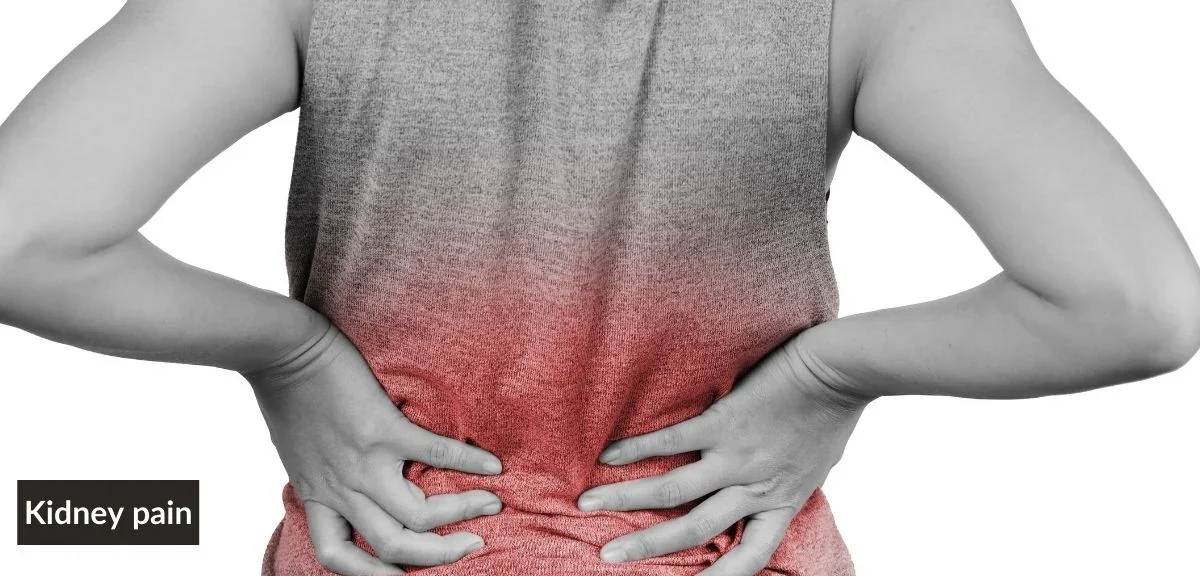Coughing is a natural reaction that lets you rid your body of excess mucus and harmful irritants, but it can also lead to secondary infections. Kidneys are delicate organs that work hard to help you keep your body functioning in optimum condition. It’s important to know whether or not your kidneys can get injured from coughing so as to take steps when necessary.
A survey found that over 73% of cases reported on at least one day per week for three months or more suffered from chronic coughs and breathing troubles. This condition could be hurting the kidney without you even knowing it.
Recommended: Can Kidney Stones Cause You To Lose Weight?
If you have been coughing for a while, and you are wondering whether your kidneys could be hurt. This post will cover everything you need to know about kidneys and cough.
Can Your Kidneys Hurt From Coughing?
If you have a chronic cough, your kidneys might hurt. The pain often comes from the muscles that surround the kidney and when coughing, these muscles are put under pressure which can cause them to hurt. If the pain does not go away and it becomes more intense, you should seek medical help as this may be a sign of kidney disease.
Coughing can cause your kidneys to hurt in two different ways: it can cause the blood vessels that supply blood to the kidneys to become swollen, and it can also cause fluid from a damaged kidney to move into the lungs (pulmonary edema).
Recommended: Can You Poop Kidney Stones Out?
The kidneys are located at the back, just below the rib cage. So any pain in that area can be mistaken for kidney pain. In fact, coughing and other respiratory problems are the most common causes of kidney pain. The severity of the pain can vary from person to person, and it may take a while for the pain to go away.
In addition, kidney pain can sometimes be accompanied by other symptoms such as fever, nausea, vomiting, and dizziness. If you are experiencing any of these symptoms in addition to kidney pain, it is important to seek medical attention right away.
How To Stop a Kidney Cough?
Kidney coughs are a type of cough that is caused by problems with the kidneys. To stop kidney cough, it is important to first of all, do a urine test. The most common cause of a kidney cough is a problem with the urinary tract, such as a bladder infection, kidney stones, or other kidney diseases. A urine test may check for signs of specific kidney problems like stones or tumors.
The reflux of stomach contents into the esophagus, which causes coughing, is one of the most frequent causes of chronic cough in dialysis patients. Another reason is Sinus drainage.
Recommended: How Long Does Kidney Failure Take To Kill You?
While it is often difficult to determine the cause of kidney pain without medical tests, CT scans, and ultrasounds, it is important to undergo a full medical examination before making any decisions about treatment.

If you have a kidney cough, there are several things you can do to help relieve the symptoms, including drinking plenty of fluids, taking over-the-counter pain medications, and avoiding strenuous activity.
Dry Cough And Kidney Pain
While a dry cough may not be serious, it can still cause pain in the kidneys. This is because other causes of pain in the kidney can be serious, and may include: spines, ribs, muscles, or pneumonia. If you are experiencing pain in your kidneys and you have a dry cough, it is important to seek medical attention to rule out any potential causes of concern.
Recommended: Does AZO Help With Kidney Stones?
Kidney pain is a common symptom that can be caused by many things. It often presents as a dull ache, but can also cause sharp waves of pain. There are other potential causes of kidney pain, including infection, stones, and cancer. One particular type of cancer, renal cell carcinoma, can sometimes present with a chronic dry cough as a paraneoplastic syndrome.
Other Causes of Kidney Pain
If you experience pain in your kidneys, it is usually due to the following:
- Kidney stones
- Inflammation of the kidney’s tissues
- Urinary tract infection
- An enlarged prostate
- A tumor on the kidney or in its vicinity (such as a cancerous growth)
- kidney infections, and other diseases or conditions that affect the kidneys.
It is important to seek medical attention if you are experiencing any type of kidney pain, as it could be a sign of a more serious problem.
Treatment For Kidney Pain
The treatment for kidney pain depends on the cause. If it is caused by a urinary tract infection, antibiotics can be prescribed to eliminate the bacteria and reduce inflammation of your kidneys. Kidney stones may be dissolved with certain medications.
If the pain is caused by a kidney stone, it may need to pass naturally or be surgically removed. However, it is important to contact your doctor before taking any medication.
Recommended: Azo For Kidney Stones: Debunking Myths and Misconceptions
FAQs
What Does It Feel Like When Your Kidneys Hurt?
It may feel like your kidneys are in pain or that they hurt all the time. You might also experience abdominal swelling, cramps, and nausea. If you have kidney stones, then it’s possible that you will experience pain in the lower back and your kidneys may feel like they’re being weighed down.
Your kidneys may hurt when you cough if the coughing is forceful enough to cause the muscles in your back and abdomen to contract too hard. This can put pressure on the kidney tissue, which causes pain.
Can Coughing Move a Kidney Stone?
Yes, coughing deeply can move a kidney stone because when coughing, the abdominal muscles contract and tighten. This can put pressure on your bladder or kidneys, which may lead to pain in those areas.
In the vast majority of cases, a kidney stone will pass out without causing any symptoms. For the smaller stones, this usually happens without any intervention. However, if you are experiencing pain or other symptoms, it is important to have an analysis done to determine whether a kidney stone is the cause.
Recommended: Why Does My Left Kidney Hurt When I Cough?
Is Coughing Related To Kidney Problems?
No, coughing is not related to kidney problems. Coughing can be caused by many different reasons including a cold, allergies, or the flu. Sometimes people with kidney problems will cough, but this does not imply that there is a connection between the two.
Can kidney Issues Cause a Cough?
Yes, Kidney issues can cause a cough because they often result in shortness of breath and/or fatigue, which can lead to coughing.
The kidneys can sometimes contribute to coughing when there is an infection or inflammation. Kidneys in your body produce and filter urine to remove waste products and excess water. When the kidneys are not working properly, your body will send a signal that you need to cough in order to remove any remaining fluids from your lungs and throat.
What Causes Coughing In Kidney Patients?
Coughing in kidney patients is caused by a buildup of fluid in the lungs. This can be due to many things, but typically it’s because of an underlying medical condition that allows for fluid to accumulate in the lungs.
In kidney patients undergoing dialysis, the reflux of stomach contents into the esophagus usually triger coughing. In fact, it is one of the most frequent causes of chronic cough in dialysis patients.
Recommended: Can You Treat Asthma Without Medication?
Coughing is a reflex that helps to clear the airways of mucus and other substances. When people cough, their chest muscles contract and force air out of the lungs. The larynx, or voice box, moves up and down as the air is forced out. The larynx also opens to allow for vocal cords to vibrate so that sound can be made.
